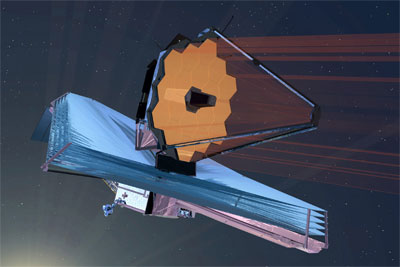American leadershipby Lou Friedman
|
| Space exploration and development are often overlooked in foreign relations and geopolitical strategies. |
It is true that American leadership can be used as a nationalistic call to advance American interests at the expense of non-American interests. But more often it may be used as an international call for promoting mutual interests and cooperation. That is certainly true in space, as demonstrated by the International Space Station, Cassini-Huygens, the James Webb Space Telescope, the Europa Jupiter System Mission, Mars 2016/2018 and Earth observing satellites.
These are great existing and proposed missions, which engage much of the world and advance the interests of the US and other nations, inspire the public, and promote cooperation among technical and scientific communities worldwide. Yet space exploration and development are often overlooked in foreign relations and geopolitical strategies.
Sometimes, the connection between space exploration and foreign relations has even been belittled in the space community. I refer to the NASA administrator’s foray into the Middle East last year, promoting science, math, and technology as a way to reach out to Muslim nations. It is true that he used some unfortunate wording, such as “foremost purpose,” but it was great that the administration wanted the space program to be part of its overarching international efforts to engaging the Muslim community in peaceful pursuits.
Apollo and the International Space Station were both accomplishments motivated more by international and geopolitical interests than they were by space enthusiasm. It’s my view that space ventures should be used to advance American engagement in the world. (For example, with China on the space station and Russia in Mars Sample Return.)
| The US can’t do everything alone. Climate monitoring, Earth observation, space weather prediction, and ultimately asteroid deflection are huge and vital global undertakings that require international participation. |
American leadership in space is much more desired that resented—except when it gets used unilaterally, as in the past Administration’s call for “dominance in cislunar space.” Asian countries (China, Japan, India) are especially interested in lunar landings; Western countries, including the US, much less so. However, cooperating with Asian countries in lunar science and utilization would be both a sign of American leadership and of practical benefit to US national interests. Apollo 11 astronaut Buzz Aldrin has been a leader advocating such cooperation. At the same time American leadership can be extended by leading spacefaring nations into the solar system with robotic and human expeditions to other worlds.
The US can’t do everything alone. Climate monitoring, Earth observation, space weather prediction, and ultimately asteroid deflection are huge and vital global undertakings that require international participation. That is also true with exploration projects sending robots and human to other worlds. American leadership in these areas is welcomed and used by other countries, even as they develop their own national programs. The US government should make more of this and not treat it as an afterthought—or even worse, prohibit American leadership as the House of Representatives is doing this week by banning any China collaboration or cooperation. (The proposed House continuing resolution for fiscal year 2011 prohibits OSTP or NASA funds to be used for anything to do with China.)
On a bigger stage I was struck by the demands of the Egyptian protesters over the past few weeks for American leadership and engagement in reforming their country, while at the same time strongly resenting any American interference in their country. This demand for American leadership and opposition to American hegemony may seem inconsistent. It is not: it only emphasizes the need to recognize the difference and use leadership for cooperation and engagement. If we Americans do this in the space program, we will accomplish more in our many Earth, space science, and exploration projects, and we will raise higher the importance of the space program on the national and international political agenda.
